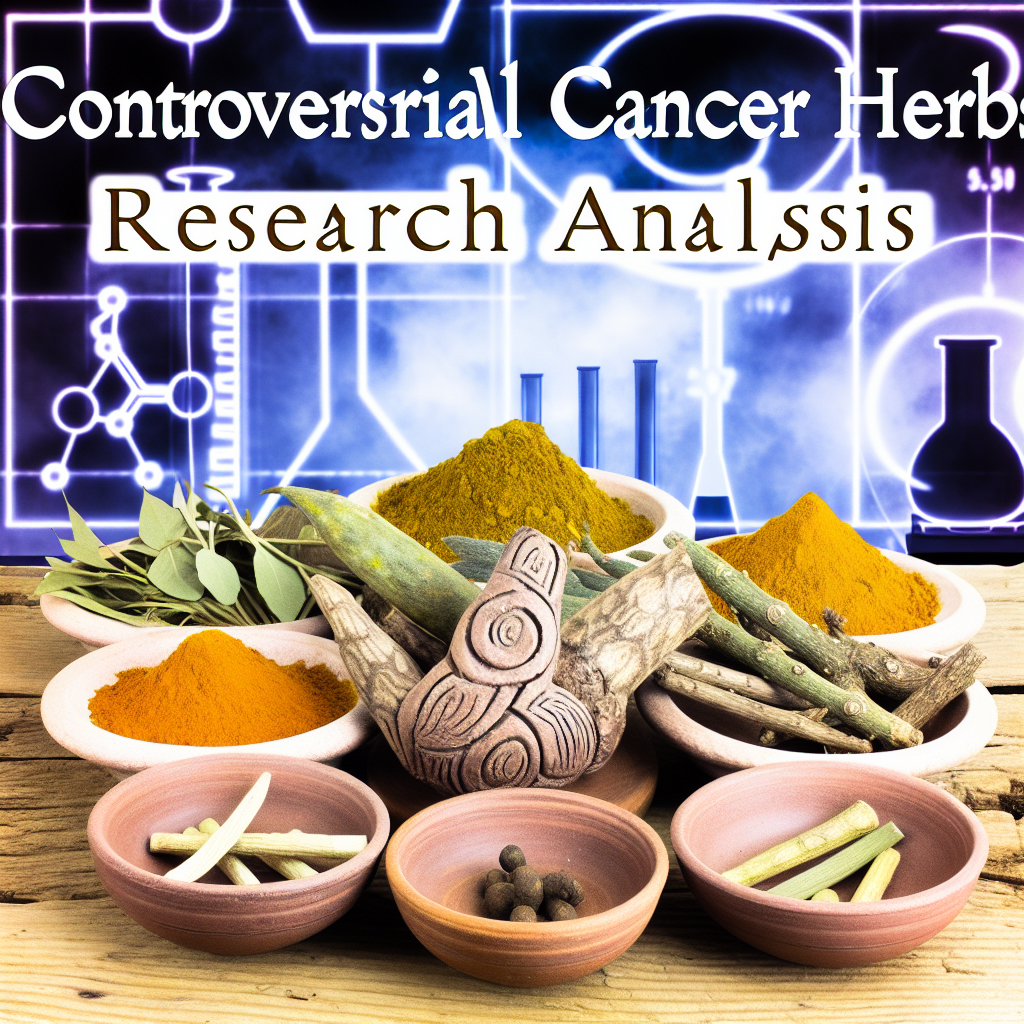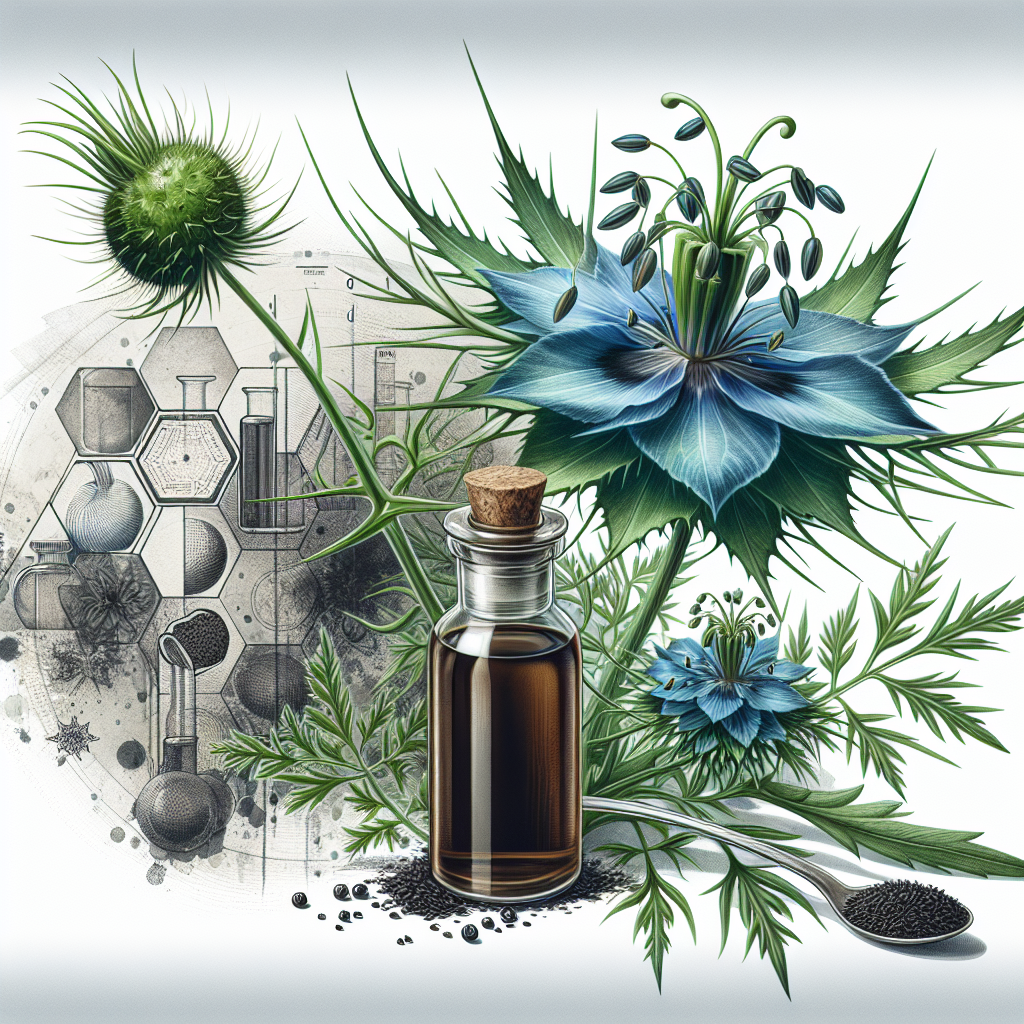Controversial Cancer Herbs: Research Analysis
Introduction
For centuries, herbal medicine has played a crucial role in human health, promising natural remedies to combat various diseases, including cancer. While some plants and herbs have shown potential for anti-cancer properties, the topic remains highly controversial. Many conventional medical professionals remain skeptical due to the lack of large-scale clinical trials, regulatory oversight, and standardized dosages. However, ongoing research continues to explore the potential of certain herbs to slow tumor growth, enhance immune response, or complement traditional cancer treatments.
The interest in herbal medicine for cancer treatment is growing rapidly due to concerns over the side effects of chemotherapy and radiation. Patients are increasingly seeking natural alternatives or complementary approaches that might improve their quality of life and even enhance their chances of remission. From traditional Chinese herbs to Ayurvedic remedies and indigenous plant medicines, herbal treatments have been widely explored in various cultures.
Despite their historical use, the dilemma lies in scientific validation. While some studies suggest that certain herbs contain bioactive compounds with anti-cancer properties, others argue that the efficacy and safety of these treatments remain unproven. Regulatory agencies like the FDA and WHO urge caution, warning against unregulated herbal supplements that lack standardized processing and dosage guidelines. This has led to a divide between alternative medicine proponents and mainstream medical institutions.
Some of the most debated cancer herbs include mistletoe, turmeric, graviola (soursop), and feverfew. While early scientific research on these herbs has yielded promising results, skepticism persists due to limited large-scale human trials. In some cases, potential toxicity and interactions with conventional cancer treatments raise additional concerns.
This article will delve into the scientific research behind some of the most controversial cancer herbs, exploring both their potential benefits and associated risks. By examining the available medical studies, we aim to provide a balanced analysis that will help consumers make informed decisions when considering herbal remedies as part of their cancer treatment journey.
The Science Behind Cancer Herbs: What Research Says
Mistletoe (Viscum album): A Potential Natural Cancer Therapy?
Mistletoe has been widely studied for its potential role in cancer therapy, particularly in Europe. This herb is commonly used in complementary medicine, especially in Germany, where mistletoe extracts like Iscador are legally administered to cancer patients. Some clinical studies suggest that mistletoe extract can boost the immune system, improve quality of life, and even reduce tumor growth.
A study published in *Cancer Medicine* (2020) reported that mistletoe extract could slow tumor proliferation in preclinical models of pancreatic and breast cancer ([source](https://www.ncbi.nlm.nih.gov/pmc/articles/PMC7410184/)). Additionally, a meta-analysis in the *Journal of Cancer Research and Clinical Oncology* found improved survival rates in patients who integrated mistletoe therapy with chemotherapy. However, critics argue that the studies lack standardized methodologies and require larger, more rigorous trials.
Turmeric and Curcumin: Can They Help Fight Cancer?
Curcumin, the active compound in turmeric, has been widely investigated for its potential anti-cancer effects. Lab studies suggest that curcumin may inhibit cancer cell proliferation and induce apoptosis (cell death) in breast, lung, and colon cancers.
A systematic review in *Pharmacological Research* (2021) highlighted curcumin‘s role in modulating cancer-related pathways, citing its ability to reduce inflammation and oxidative stress ([source](https://pubmed.ncbi.nlm.nih.gov/33038432/)). Furthermore, a clinical trial at MD Anderson Cancer Center found that curcumin supplementation enhanced the efficacy of chemotherapy in patients with advanced pancreatic cancer.
However, curcumin‘s bioavailability remains an issue. The human body struggles to absorb curcumin efficiently, leading to lower concentrations in tissues. While black pepper extract (piperine) has been shown to enhance its absorption, more clinical trials are needed to confirm curcumin‘s real-world anticancer benefits.
Graviola (Annona muricata): A Promising But Controversial Cancer Herb
Also known as soursop, graviola has gained attention for its potential anticancer properties due to its high content of acetogenins, compounds reported to exhibit cytotoxic activity against cancer cells. Some laboratory studies have shown that graviola extracts can inhibit the growth of certain types of cancer cells, including breast, prostate, and pancreatic cancers.
A study in *Oxidative Medicine and Cellular Longevity* (2022) found that graviola extracts displayed selective toxicity to cancer cells while sparing normal cells ([source](https://pubmed.ncbi.nlm.nih.gov/35445647/)). However, human trials remain scarce, and concerns have been raised about potential toxicity, particularly regarding neurological side effects linked to long-term consumption.
Feverfew (Tanacetum parthenium): A Traditional Remedy with Anti-Cancer Potential
Feverfew, traditionally used for migraines and inflammatory conditions, contains a compound called parthenolide, which has been proposed for its potential cancer-fighting properties. Researchers have identified that parthenolide may promote cancer cell apoptosis by targeting stem cells linked to leukemia and other malignancies.
A study published in *Nature Chemical Biology* (2020) suggested that feverfew extracts could inhibit the growth of acute myeloid leukemia (AML) cells while reducing inflammation that contributes to tumor progression ([source](https://www.nature.com/articles/s41589-020-0574-x)). Despite its promising lab results, human clinical trials remain limited, and more studies are needed before feverfew can be considered a mainstream cancer treatment.
Final Thoughts: Should Cancer Patients Consider Herbal Treatments?
While the exploration of herbal therapies for cancer treatment is compelling, the scientific evidence remains inconclusive for many of these natural remedies. Some herbs, such as mistletoe and turmeric, have demonstrated promising results in preclinical and limited clinical studies, showing potential to enhance immune function, reduce inflammation, and slow tumor growth. However, the lack of standardized dosages, potential interactions with conventional treatments, and insufficient large-scale human trials make it essential for cancer patients to consult their healthcare providers before integrating herbal treatments into their regimen.
The growing interest in alternative medicine underscores the need for more rigorous clinical studies to ascertain the true benefits and risks of herbal cancer treatments. Given the controversies and scientific gaps, patients should approach these remedies with caution, ensuring that any natural supplements they use are from reputable sources and do not interfere with their medical treatments. The future of herbal medicine in oncology may be promising, but until further research provides definitive conclusions, cancer patients should prioritize evidence-based treatments while considering herbal remedies as supportive rather than primary therapies.
References
1. [Mistletoe extract in cancer therapy: Preclinical and clinical studies](https://www.ncbi.nlm.nih.gov/pmc/articles/PMC7410184/)
2. [Curcumin’s role in cancer treatment and prevention](https://pubmed.ncbi.nlm.nih.gov/33038432/)
3. [Graviola extract and its potential as an anti-cancer agent](https://pubmed.ncbi.nlm.nih.gov/35445647/)
4. [Parthenolide from feverfew in leukemia therapy](https://www.nature.com/articles/s41589-020-0574-x)
Concise Summary:
The article delves into the scientific research behind some of the most controversial cancer herbs, including mistletoe, turmeric, graviola, and feverfew. While these herbs have shown promising results in laboratory studies, the scientific evidence remains inconclusive due to the lack of large-scale clinical trials, standardized dosages, and potential interactions with conventional cancer treatments. The article emphasizes the need for more rigorous research and cautions cancer patients to consult their healthcare providers before integrating herbal remedies into their treatment regimen.

Dominic E. is a passionate filmmaker navigating the exciting intersection of art and science. By day, he delves into the complexities of the human body as a full-time medical writer, meticulously translating intricate medical concepts into accessible and engaging narratives. By night, he explores the boundless realm of cinematic storytelling, crafting narratives that evoke emotion and challenge perspectives.
Film Student and Full-time Medical Writer for ContentVendor.com




